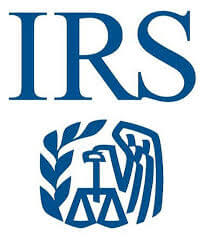The IRS announced yesterday its waiving $1.2 billion in late-filing penalties for income tax returns, letting about 1.6 million taxpayers off the hook. What is behind this decision from an agency not known for forgiveness?
From our perspective, the reason is less about caring for taxpayers and more about an organizational disaster. The IRS has 10-20 million returns backed up. It could take a year before the returns are processed. If a return is received and does not get processed for a year. If the taxpayer filed the return late and the IRS took a year to review it, penalties accrue to the taxpayer until the IRS gets to it.
And this is the main reason for increasing the IRS budget. Most of the money is staying in house to allow for faster determination. Someone earning $400,000 or less still has less than a 4% chance of being audited.
Tax preparers say this is a rare step for the agency, reports The Wall Street Journal. Taxpayers aren’t the only ones struggling with getting their taxes in order.
The IRS said they waived late penalties to let the agency focus resources on processing backlogged tax returns and taxpayer correspondence to help get operations back to normal for the 2023 tax filing season.
IRS Commissioner Chuck Rettig described the relief as “…yet another way the agency is supporting people during this unprecedented time.”
The relief does not apply to a separate failure to pay penalties applied to taxpayers who might have filed on time but did not pay on time. And if you are due a refund, there is no failure to file penalty. If you have not yet filed for tax years 2019 and 2020, you only have until September 30 to file to avoid late penalties.
Not everyone feels this is enough. The chair of the Tax Executive Committee for the AICPA says it has been asking the IRS for blanket relief since July 2020. They want more relief for more taxpayers.
Two ways to request penalty relief are by sending in IRS Form 843 and a letter explaining reasonable cases and by calling the IRS to ask for first-time penalty abatement.
Note that the penalty relief does not extend to this year’s tax filing season. Tax returns and payments for 2021 were due on April 18, 2020. For most taxpayers, returns for those who requested an extension are due on October 17.
Nineteen million individuals asked for an extension this year.
# # #

